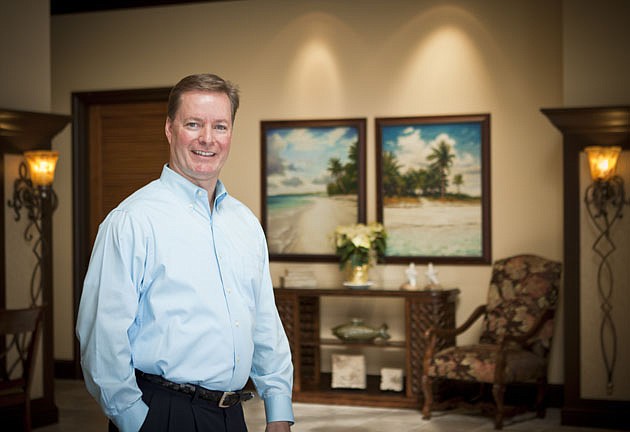The three-year struggle to save LandMark Bank was so intense, CEO Tom Quale says his goal, past actually avoiding regulatory failure, was to not have heart failure while doing it.
Quale couldn't save the Sarasota-based bank, which state regulators closed July 22. The good news: Despite what he called a cave-like existence and a daily bombardment of stress, Quale didn't have a heart attack.
But while the bank didn't survive, Quale's banking career has been resuscitated. He's now market executive for the Sarasota branch of Orlando-based Seaside National Bank & Trust. Seaside, with 12 Florida locations, had $737.7 million in assets through Sept. 30, according to Federal Deposit Insurance Corp. data. The 5-year-old bank turned a profit for the first time in August, and expects it will be profitable for the remainder of the year.
Probably more important than size, though, are these data nuggets: Seaside's Tier 1 risk-based capital ratio through Sept. 30 was 11.96% and its total risk-based capital ratio was 13.17%, figures far above regulatory requirements for a well-capitalized bank. Plus, the bank's noncurrent loans to total loans portfolio was 2% — a fraction of what troubled banks usually hold.
Those figures are akin to a new lease on life for Quale. Former LandMark executives Sean Powers and Linda Braithwaite have joined Quale at Seaside.
“It's a breath of fresh air to get out of the cave and be able to come back to the real world,” says Quale. “Our life is simplified and focused back on the customer.”
At LandMark, Quale's life was anything but simple. Founded in February 2000, the bank initially grew fast. It was one of the leading members of a class of de novo banks launched in the Sarasota-Bradenton market in 1999 and 2000. It surpassed $200 million in assets by 2005, and $280 million halfway through 2006.
But capital levels began to erode in 2009, when the recession and the subsequent collapse in real estate values put the bank on a slow road to closure. It had $275 million in assets when it was shut down, and its deposits were transferred to Tampa-based American Momentum Bank.
“What we went through the last three years was horrible,” says Quale, who declines to elaborate on specific issues with LandMark or the survival attempts. “We fought extremely hard, but unfortunately at the end of the day, we weren't able to save it.”
Quale decided Seaside was the best fit for his next career stop because the bank, in a sense, was sized just right: It wasn't too small, nor too big —the bank sizes many in the industry believe will be squeezed the most by the changing regulatory environment.
The one dark spot on Seaside's financial position is a formal agreement it signed with the U.S. Comptroller of the Currency in May 2010. That agreement required the bank to improve liquidity and take “immediate and continuing” action to protect itself against loan problems connected with Ocala-based Taylor, Bean & Whitaker, a failed mortgage-lending firm.
Seaside Regional President Tim Myers, who oversees four markets for the bank, including Tampa and Sarasota, says the institution has met all conditions of the agreement. Moreover, the stigma of being under regulatory order or agreement seems to have waned, considering the overwhelming majority of Florida community banks face the same situation.
“We have capital to lend,” says Myers. “We are not perfect, but our key metrics in our loan portfolio are doing well.”
Gideon Haymaker, who previously ran private client services for SunTrust Bank in Florida, founded Seaside in 2006. Seaside officials now say it's the largest de novo federally chartered bank in the United States. The bank offers wealth management, in addition to private banking, and Myers says it seeks commercial loan clients in the mid-market range that “make things and sell things.”
The Sarasota-Manatee Seaside office, run out of a onetime Legg Mason location on Main Street in downtown Sarasota, has eight employees, including the trio of former LandMark executives. “We're not out looking for a large volume of transactions,” says Quale. “We learned (from LandMark) that people bank with people. They don't bank because of a name on the building.”






